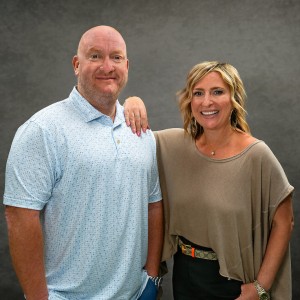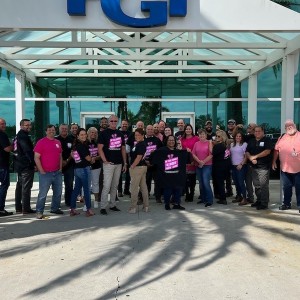Q: I would love to live truly self-sufficiently, but don’t know what I can realistically accomplish. How I can start living off the grid without breaking my bank?
Michael Crea, Survive Anything, owner says: The best thing is to get renewable energy and wind power and grow your own food. You can start collecting rainwater, drilling a well and using that instead of city water. Basically we are more of an emergency preparedness store, but we can help you stock your pantry and get you the right survival gear and go bag. You will have all the supplies you need. I recommend always having enough food for at least three or four months, having a supply of water and keeping around stuff to make a fire and cook the food. You should have water-purification items; that’s a big seller and a big must-have because if your water is dirty, you can't drink it. With supplies, you can spend a good $1,000 and be good for a month or two for one person. If you have a large family, you will need to spend a couple grand. But food we sell here, like MREs (meals ready to eat), has a 20-year shelf life, and it’s better for you than buying Rice-A-Roni.
Scott Egglefield, Mirasol FAFCO Solar, president says: We have financing programs people take advantage of on solar installation. You can get 4.95-percent interest over 20 years. We have a guy who has a $40,000 [system] and we could finance the whole thing on his $12,000 tax credit. Typically payments are lower than your savings. Right now you can switch to solar without a dime coming out of your pockets. Once people realize the rebates and incentives are there to amortize the local, they see the advantages. There is some confusion, though, about the term ‘off the grid.’ Usually we install grid systems that use a Florida Power and Light battery so that if you are producing more electricity than you use, you can store it in the FPL battery. If you actually want off the grid, you need a battery startup, and even those people typically want to stay connected to the grid. Nobody gets completely off. The real goal is to get to using zero energy off the grid. To get that other battery costs $10,000 or $15,000 more, but you are still eligible for a 30-percent tax credit off the purchase price. It’s almost like a subsidy from the IRS.
Robert Kluson, UF/IFAS Extension, agriculture and natural resources extension agent says: Most people choose to try to live off the land as a lifestyle choice, not to try to make a living at it. Like with the backyard chicken movement—you buy cheaper eggs at the store than what you do raising them yourself, but more choices are value-based than economic-based. It’s the intangible things weighing in to the decision. When families show up with kids and tell their reason for doing this, it is to teach children where food comes from and for them to have responsibility. Another popular thing to do is backyard beekeeping. Granted there are all these rumors the price of honey may skyrocket because of honeybee colony collapse disorder, but many people want to proactively help the honeybees with a worldwide problem of honeybees dying. Now that isn’t to say we don't teach people to be as economical as possible. With backyard chicken keepers, we will show them you can feed them your kitchen scraps as well as buy feed at a local feed store, and you can buy portable coops so the chickens forage and eat insects. Those will cut down your feed bill probably a good 25 to 50 percent. Some tell me they want to go to the next step so they can make their own feed. That’s being ambitious, and I don't have anyone who has successfully done that. I let them know what grains they can buy in Florida and also tell them it’s a tricky business that they get all the nutrients, but there are ways they can start reducing costs of raising their food. As for growing fresh produce at home, one of the benefits besides the food being fresher and more nutritious is that it lasts longer in your refrigerator. The average fresh produce in a store has come long distance and could be two to three weeks old. Home garden goods can last a couple weeks. That’s a savings just by being less to replace in your refrigerator. Another thing in Florida, and we stress this because most people who live here are originally from the North, there are different kinds of vegetables that can be grown in the summer as well. It’s actually an all-year-long opportunity to grow produce here.










